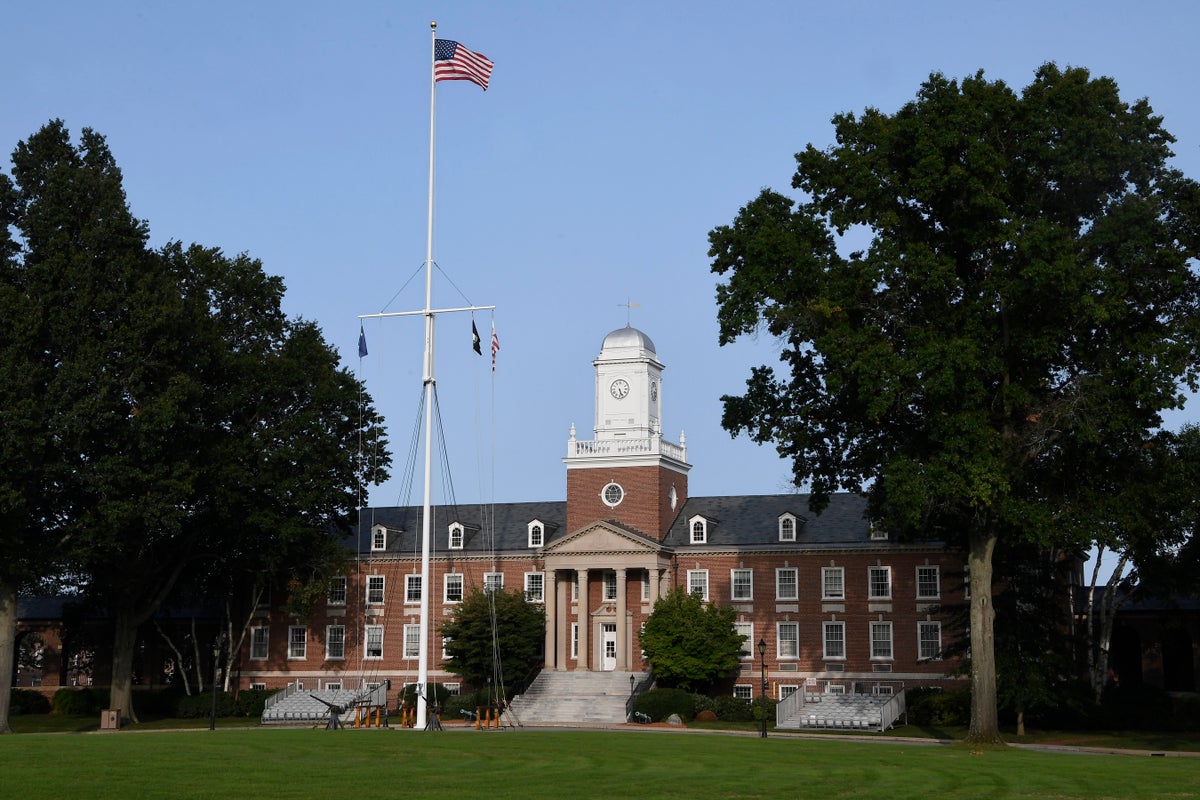
Coast Guard Academy officials and a lawyer for several cadets are disputing each other's accounts of what happened to seven students before and after they were forced to leave the Connecticut campus last month after refusing to be vaccinated against COVID-19.
The New London academy said in a statement Thursday that school officials helped the seven cadets make travel arrangements and “funded travel to the location of their choice.” Officials also said all seven cadets are living in safe locations, either having returned to their families or staying with families of other cadets.
The statement contradicted comments made earlier this week by Michael Rose, a lawyer for several of the cadets. Rose told The Day newspaper that school officials did not help the students with travel arrangements, did not give them any money for travel and that one of the cadets was forced to live in his truck because he is estranged from his family.
The academy disenrolled the seven cadets last month for failing to comply with the military’s COVID-19 vaccination mandate, after their requests for religious exemptions were denied earlier this year. The cadets, whose names have not been released, were required to leave the campus by Aug. 19.
Cmdr. Krystyn Pecora, an academy spokesperson, acknowledged later Thursday in an interview with The Associated Press that the academy did not give the cadets travel funds before they left campus, but rather will reimburse them later when the cadets file their expenses, per the school's general travel expense policy.
Pecora also said officials were surprised to learn about the cadet who Rose said was forced to live in his truck, saying the student told officials he would be living with a fellow cadet's family.
Rose said the student lived in his truck for four days while he figured out where he was going to live, because he could not stay with his family due to an ongoing dispute. Rose further said the student had informed academy officials that he had nowhere to go before leaving campus. The cadet is now staying with a high school friend in another state.
The academy also said in its statement Thursday that all seven cadets left the school “at their own convenience” throughout the day on Aug. 19, based on their individual travel arrangements. Rose had said the cadets “were escorted to the gate like they were criminals or something.”
Rose, who is based in Summerville, South Carolina, acknowledged Thursday that he was wrong about officials escorting cadets off campus. But he said officials had threatened to have armed guards take one of the cadets off campus if he didn't leave by Aug. 19.
The academy noted that though the students are disenrolled, they have not yet been formally separated from the Coast Guard and are continuing to receive benefits and pay — about $1,600 a month, minus certain expenses including uniforms and books. It was not clear how long the separations will take.
Defense Secretary Lloyd Austin last year made the COVID-19 vaccinations mandatory for service members, including those at the military academies, saying the vaccine is critical to maintaining military readiness and the health of the force. Several lawsuits are challenging that mandate, including two in South Carolina and Texas involving some of the Coast Guard Academy cadets that Rose represents, as well as cadets from other academies.
The seven Coast Guard academy cadets filed for religious exemptions to the vaccination mandate in September 2021. They were told in March that their applications were rejected. They appealed that decision, but were denied in May and ordered to report to the academy clinic for vaccination, the academy said.
The seven cadets ultimately refused to follow that order and were told in June that they would be disenrolled for failing to follow the mandate and vaccination orders. They appealed their disenrollments, but were notified on Aug. 15 that their appeals were denied. The students were then told to leave campus by Aug. 19, the academy said.
Rose said the students were told on Aug. 18 that they had to leave campus the next day, and many scrambled to make arrangements.







